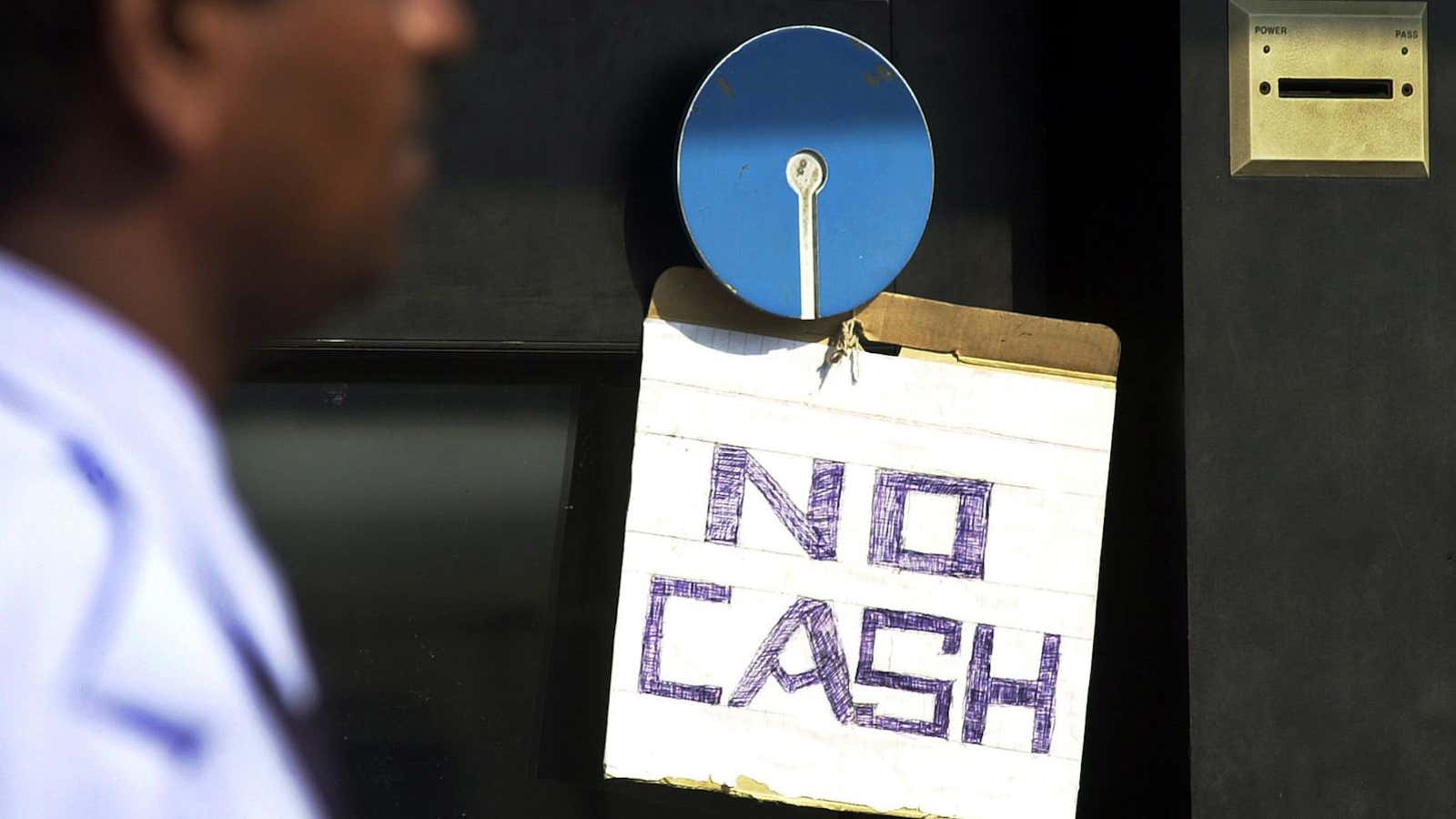In different parts of India this holiday weekend is somewhere between five and seven days long.
While banks in Kolkata are shut between 1st and 7 October, besides working for half a day on the 4th, in other parts of the country, this weekend spans from 2nd to 6 October. This includes a national holiday for Gandhi Jayanti on the 2nd and festive holidays for Dusshera and Bakra Eid on 3rd and 6th.
The unusually long holiday weekend will have some impact on banking operations—cheques will take longer than usual to clear, for instance. In some parts of the country, especially in the east, customers will now have to wait till Wednesday to avail services at a bank branch.
But availability of cash at ATMs (automated teller machines) will be largely unaffected as banks make special arrangements during such occasions. ATMs of major banks are typically refilled every day. On occasions such as these, banks usually park additional cash reserves with an external agency, which will in turn periodically refill ATMs. The machines of smaller and state-run banks that use a mix of in-house and external personnel for refills might run out of cash.
“ATM refilling is outsourced by most banks. In case of public holidays, the cash logistics company holds some amount of cash. We know the withdrawal trends so banks can prepare for such situations,” K Unnikrishnan, deputy chief executive at the Indian Banks Association, said.
Typically ATMs of major banks are refilled every day of the week, except Sundays. “SBI, Axis Bank, HDFC, ICICI and a few other major banks have a daily fill model, which means that their ATMs are visited for refilling 25 days a month,” Anush Raghavan, vice president and head of risk management at CMS Infosystems, said. Other bank ATMs are typically visited 15 days a month.
An ATM can hold Rs8-15 lakh per machine. Banks fill currency in four slots that hold 2,000 notes each. This typically translates to 4,000 notes of Rs100, 2,000 notes of Rs500 and 2,000 notes of Rs1,000, Raghavan said.
Most private sector banks outsource the entire operation. But some public sector banks use a mix of self-managed and outsourced ATMs, Raghavan said, adding that such machines run the risk of running dry.
Companies that are in the business of refilling ATMs have vaults in different parts of the country to hold cash on behalf of a bank and charge a premium for emergency services to the banks for refilling on public holidays and Sundays.
Raghavan says that such situations are common and arise about 6-8 times every year.
